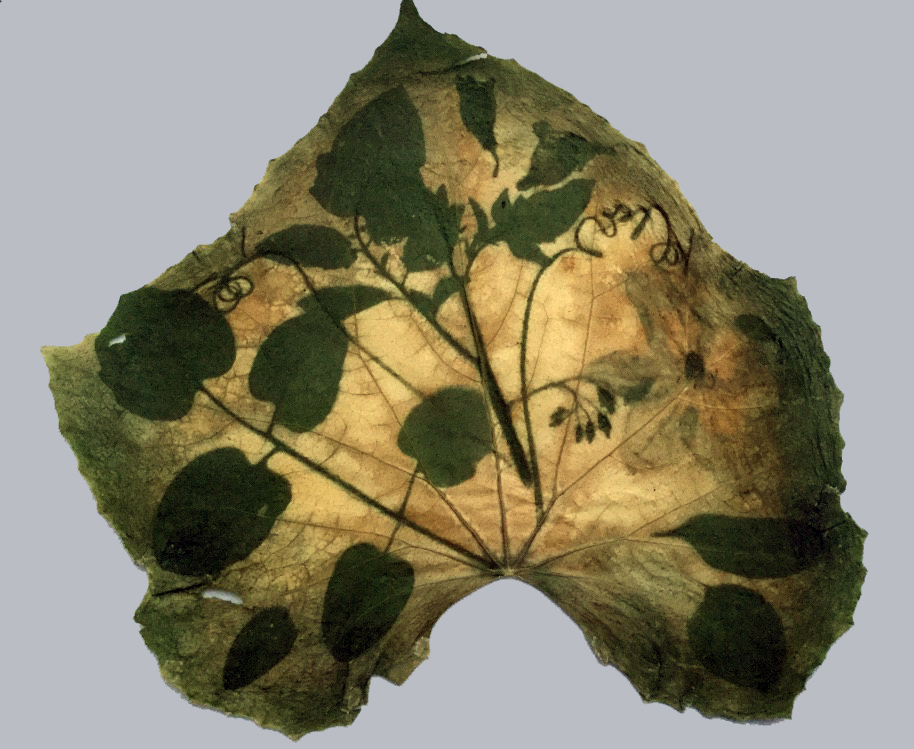
Tutor: Ruth Jacobs
Dates: Sun 2 May to Sun 23 May 2021
Zoom calls: every Sunday from 6 to 8pm BST (but we can rearrange the time to suit participants’ time zones!)
Minimum no. of participants: 8
Maximum no. of participants: 20
Price: 170 euros (150 £). Early bird 10% discount until April 17.
For more info, write us an email at pr@self-portrait.eu
Workshop info:
Both anthotype and chloropyhll printing techniques utilise the light sensitive nature of plants and their reaction with sunlight to create images without use of cameras or lenses. All the materials required for this workshop are easily available in the kitchen, garden, grocery shop or chemist. You will not need access to any specialist darkroom equipment, chemistry, or silver based light sensitive materials usually used in traditional photography, however, you will need plenty of sun!
This workshop is suitable for beginners and more experienced photographers alike, you don’t need any previous experience, or access to specialised equipment or cameras.
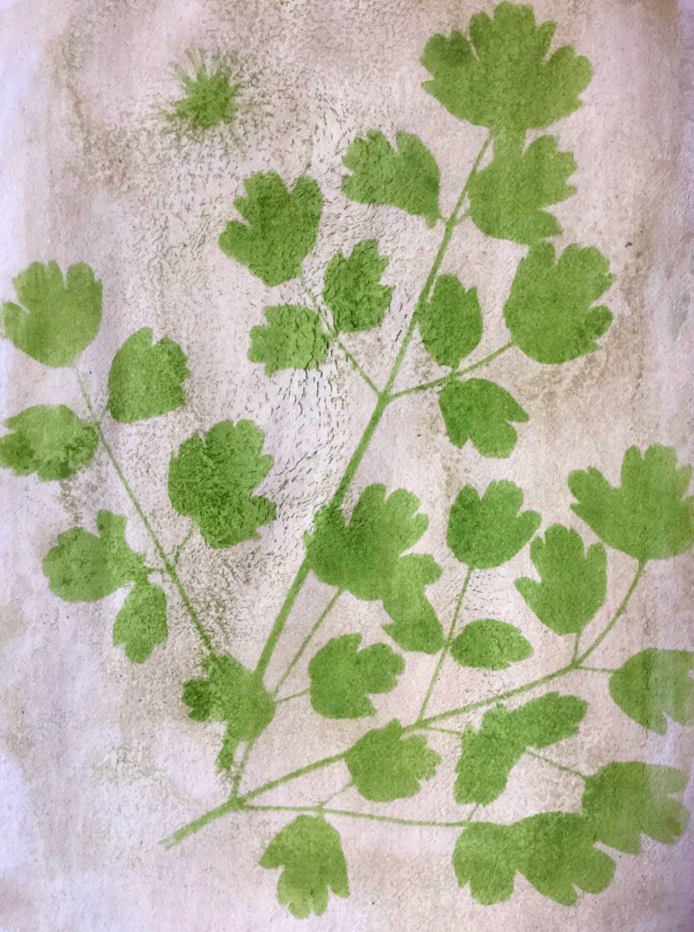
Anthotypes:
The anthotype process uses plant juices and extracts made from any green plant material, coated onto good quality paper, but also you can use fruit, flower petals, herbs and spices. For example, spinach works well, as does beetroot, cooked onion skins, turmeric, kale, wild garlic, and rocket. You will be encouraged to experiment during this workshop and try different plant, flowers, or vegetables depending on what you have available. The recipes will be discussed in detail during the workshop, and you will be invited to share your results.
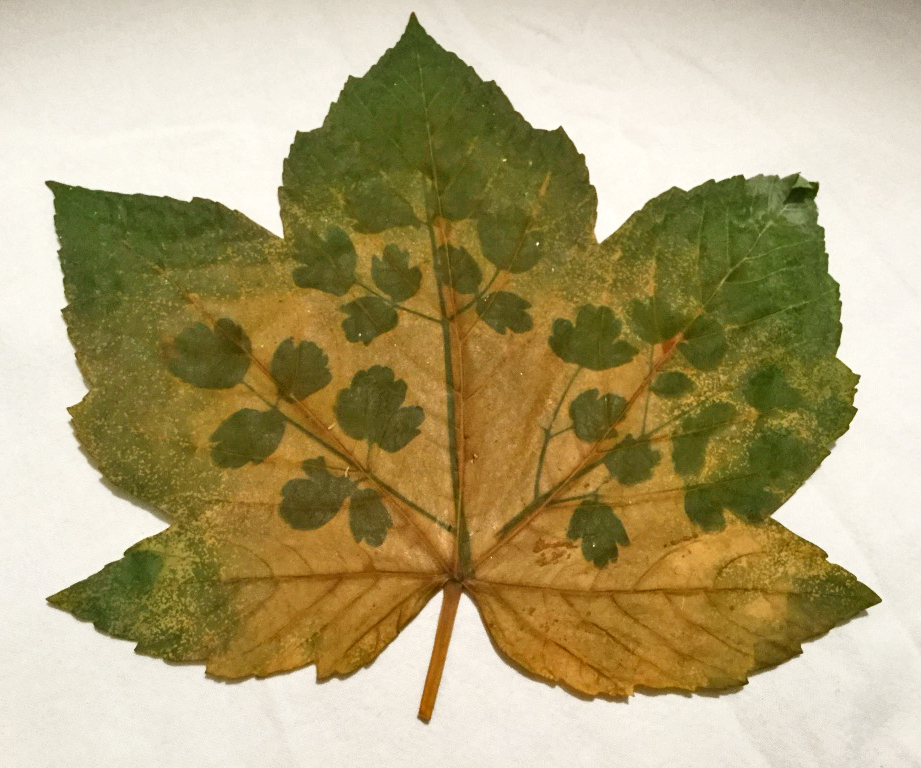
Chlorophyll Printing:
This process involves the creation of an image on living leaves, using the action of sunlight on chlorophyll, the light sensitive material in plants that enables photosynthesis to take place. We will experiment with placing flowers, smaller leaves, feathers or images on acetate or negatives onto leaves and placing them in the sun to make an exposure. You don’t need to be a horticulturalist or botanist to have success with this technique, just access to trees and plants, patience, some Perspex or clipframes, and lots of sun.
Objectives:
- To explore the natural world around you, and select leaves, flowers, fruits, grasses and other plant material to create cameraless images.
- To carry out your own experiments with different plant-based recipes for making light sensitive materials which will react in sunlight to create images.
- To create a series of images using these techniques which will reflect the light sensitive properties of leaves, flowers, fruits, vegetables and grasses, found in gardens, parks or allotments wherever you are.
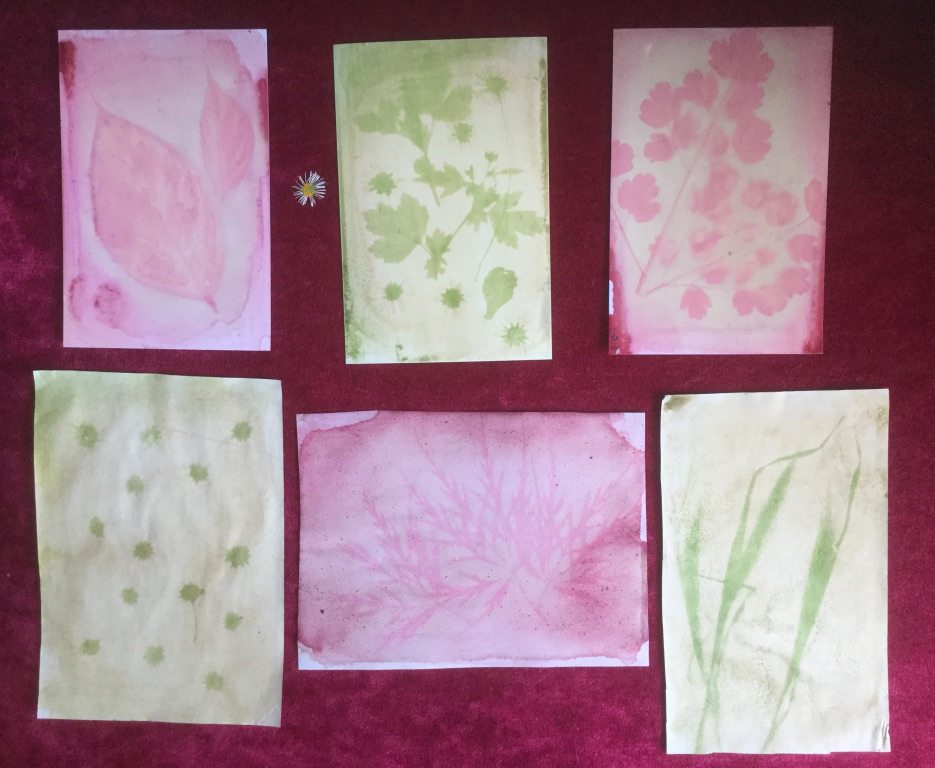
Learning outcomes:
- Knowledge and understanding of how plant materials react in sunlight,
- The ability to use appropriate processes and techniques to create light sensitive materials from plants,
- Gather ideas and inspiration from the work of selected artists who have used these techniques and processes in their work,
- Practise in creating images using light sensitive plant-based materials.
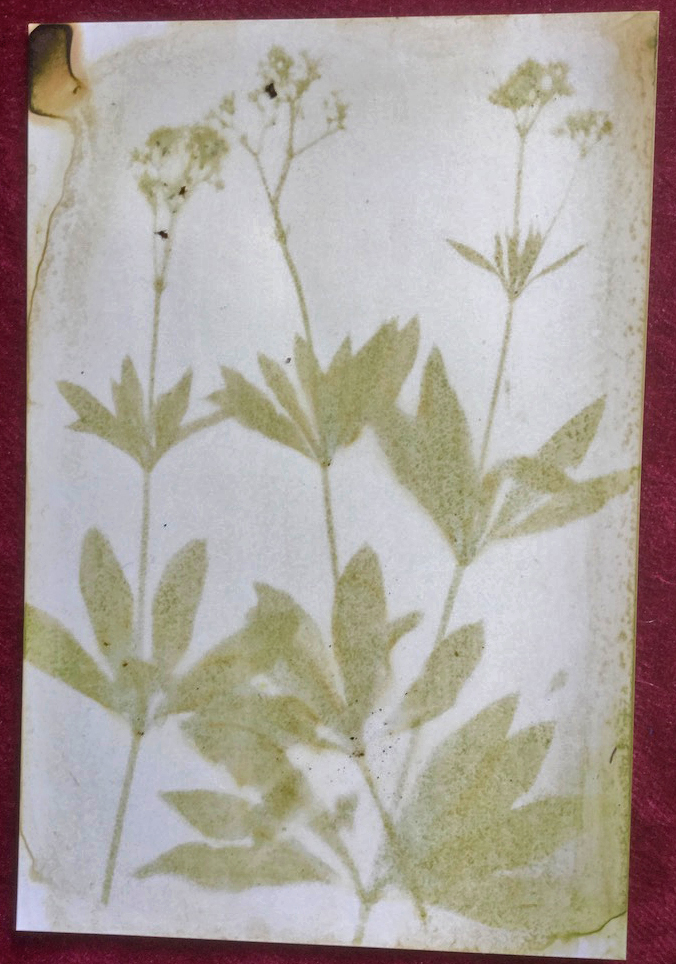
Programme:
Week one – Sun 2 May: Introductions, presentation of techniques, ideas and artists to research for ideas and inspiration, and sharing examples of Ruth’s previous work. We will discuss projects for participants to carry out during the workshop.
Week two – Sun 9 May: Second workshop with the whole group to look at anthotype recipes and chlorophyll printing techniques in more detail, and discuss participants’ ideas.
Week three – 10 to 17 May: Tutorials with smaller groups to see how their experiments are going and review progress on project work.
Week four – Sun 23 May: Final workshop, meet back up and presentation of completed project work to peers.
Please note: Online Workshops in week 1, 2 and 4 will take place via Zoom from 6 till 8pm BST, but we can rearrange the time to suit participants’ time zones! Small group tutorials to be arranged at times to suit the group.
Have a look at Ruth’s free video tutorial!
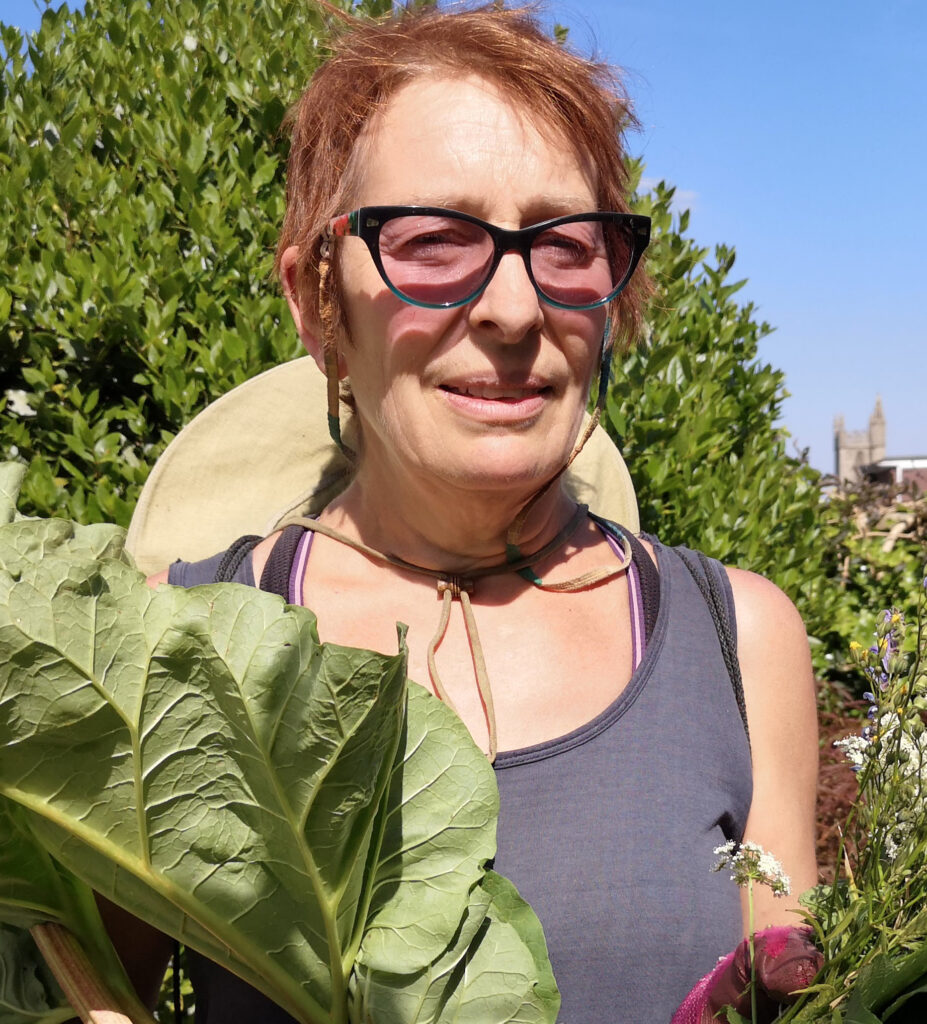
Tutor biography: Ruth Jacobs
Ruth has a 1st class Photography BA Hons Degree and 35 years’ experience in photography, teaching and community arts. She taught photography in Further Education in Cardiff, Wales, before relocating to Bristol in 1997 to manage darkrooms and run community photography projects and courses at Watershed Media Centre. From 2006 Ruth delivered arts and community engagement programmes in hospitals, adventure playgrounds and residential retirement communities, and in 2017 became a founder member and Director of the Real Photography Company. She teaches black and white photography (when Darkrooms are not in lockdown) and currently enjoys walking, gardening, yoga and experimenting with alternative photography techniques.
Instagram: @ruthhjacobs
